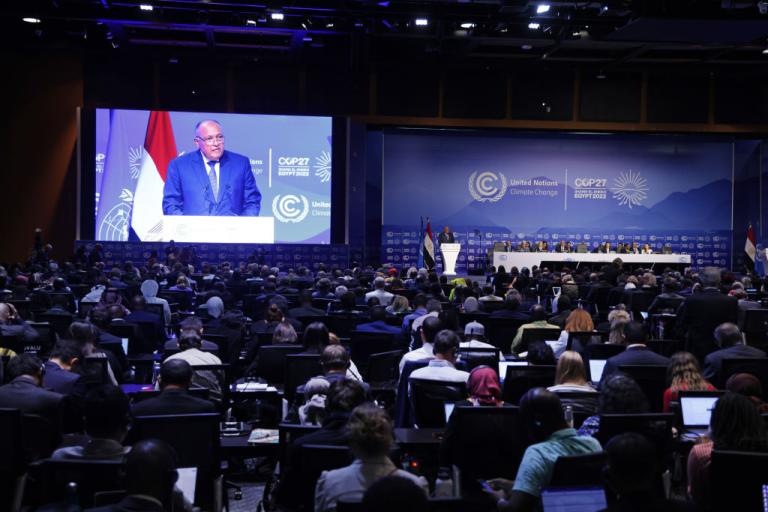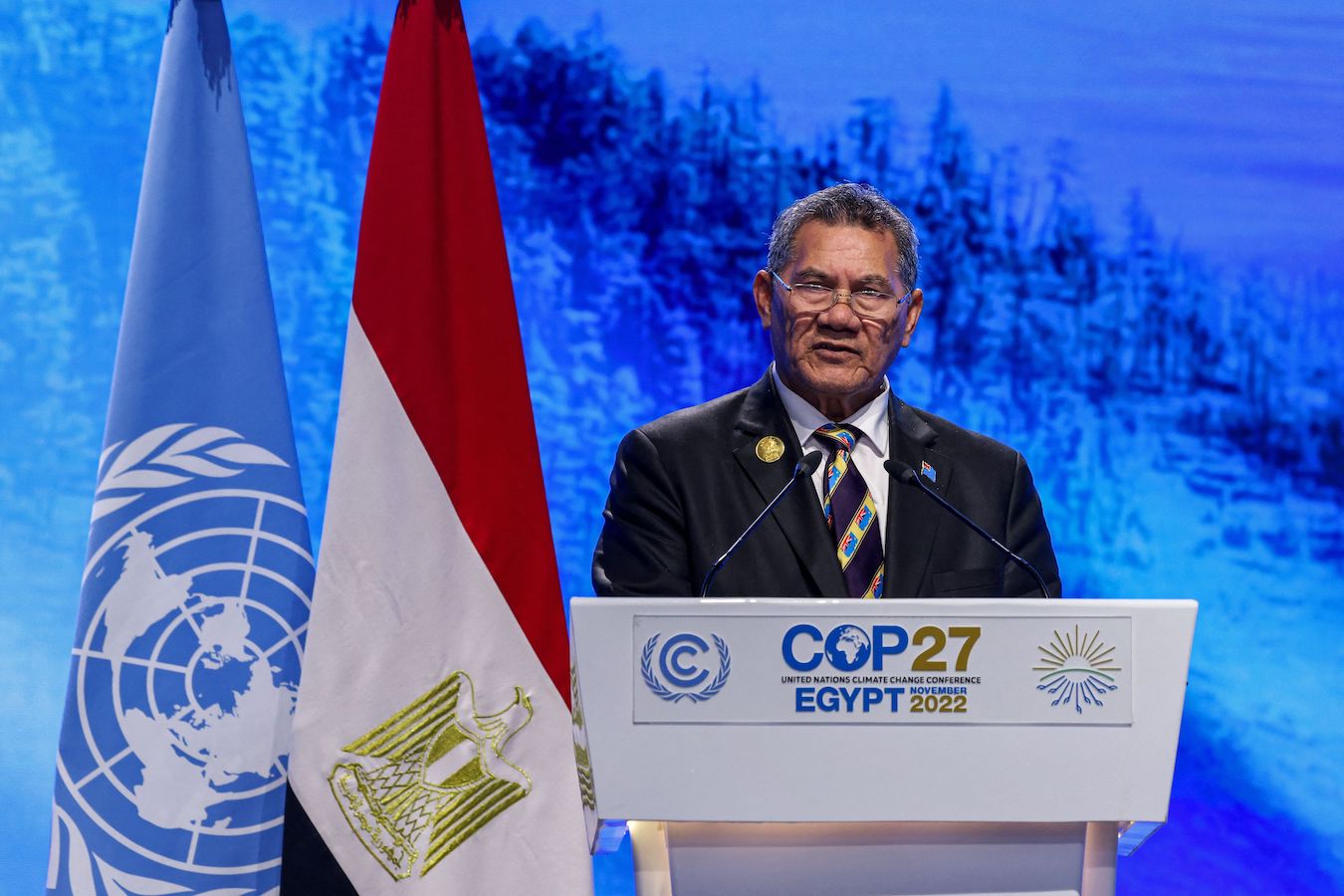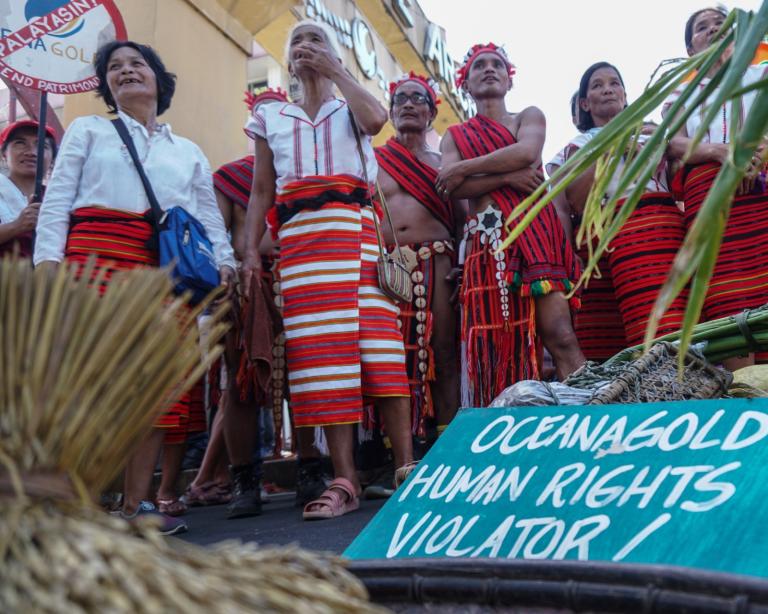The island nation of Tuvalu has become the second country in the world to call for an international Fossil Fuel Non-Proliferation Treaty. Modeled after the 1968 Treaty on the Non-Proliferation of Nuclear Weapons, the international mechanism would stop the expansion of fossil fuels, phase out existing production, and create paths to renewable energy development.
Announced at the United Nations climate summit, known as COP27, in Sharm El-Sheikh, Egypt, the Non-Proliferation treaty would complement goals set by the Paris Climate Agreement.
“We all know that the leading cause of the climate crisis is fossil fuels,” Tuvalu Prime Minister Kausea Natano said. “Tuvalu has joined Vanuatu and other nations in calling for a Fossil Fuel Non-Proliferation Treaty to steer our development model to pursue renewables and a just transition away from fossil fuels.”
In September, the Republic of Vanuatu became the first country to call for a Fossil Fuel Non-Proliferation Treaty at the United Nations General Assembly. The European Parliament, the Vatican, the World Health Organization, and a number of major cities across the globe have also called for the treaty in the last year.
With a population of a little more than 10,000, Tuvalu’s endorsement of the treaty is a matter of survival. Situated in the Pacific Ocean, climate change has brought rising sea levels, increasingly devastating storms, and a biodiversity crisis to the island and its neighbors. Some studies have predicted that island nations like Tuvalu and Vanuatu will be entirely under water by the end of the century, displacing hundreds of thousands of people. “Ocean states have provided so much leadership to international policy-making,” said Harjeet Singh, Political Lead of the Climate Action Network International. “This is the next necessary step in international climate policy for climate justice.”
Pacific island countries, developing nations, and climate activists have been calling for fossil fuels to be phased out for years but progress has been mixed. A 2020 study found that between 1989 and 2016, there were 1,302 fossil fuel cutting initiatives in 106 countries around the world. However, except for Canada, Norway, and the U.S., most of those initiatives were in countries that do not rely heavily on fossil fuels. In the U.S., nearly a dozen cities have supported the phase out of fossil fuels, and while President Joe Biden has committed to shifting the country to renewable energy, he has also approved new oil and gas drilling projects faster than the Trump administration.
“Every day we are experiencing more debilitating consequences of the climate crisis.” Vanuatu President Nikenike Vurobaravu said in his announcement. “Fundamental human rights are being violated, and we are measuring climate change not in degrees of Celsius or tons of carbon, but in human lives.”
Tuvalu’s call comes amid historic discussions over climate reparations, also known as loss and damage, at COP27. While island and developing nations are facing the brunt of climate impacts, they have contributed very little to climate change. Wealthier nations have been asked to create a fund to help those countries recover from climate damages and adapt to the changing world. This year, Denmark became the first independent country to create such a fund, but overall progress has been slow, with many countries like the United States dragging their feet. Activists and world leaders hope that this year, with loss and damage on the COP agenda for the first time ever, real action may finally be coming.
“We need countries to be bold, because we have run out of time,” said Kalo Afeaki, Pacific Climate Warrior from the Kingdom of Tonga, in September. “The future scares me – we need to phase out fossil fuels, we need countries to endorse the Fossil Fuel Non-Proliferation Treaty and we need them to do so now.”



